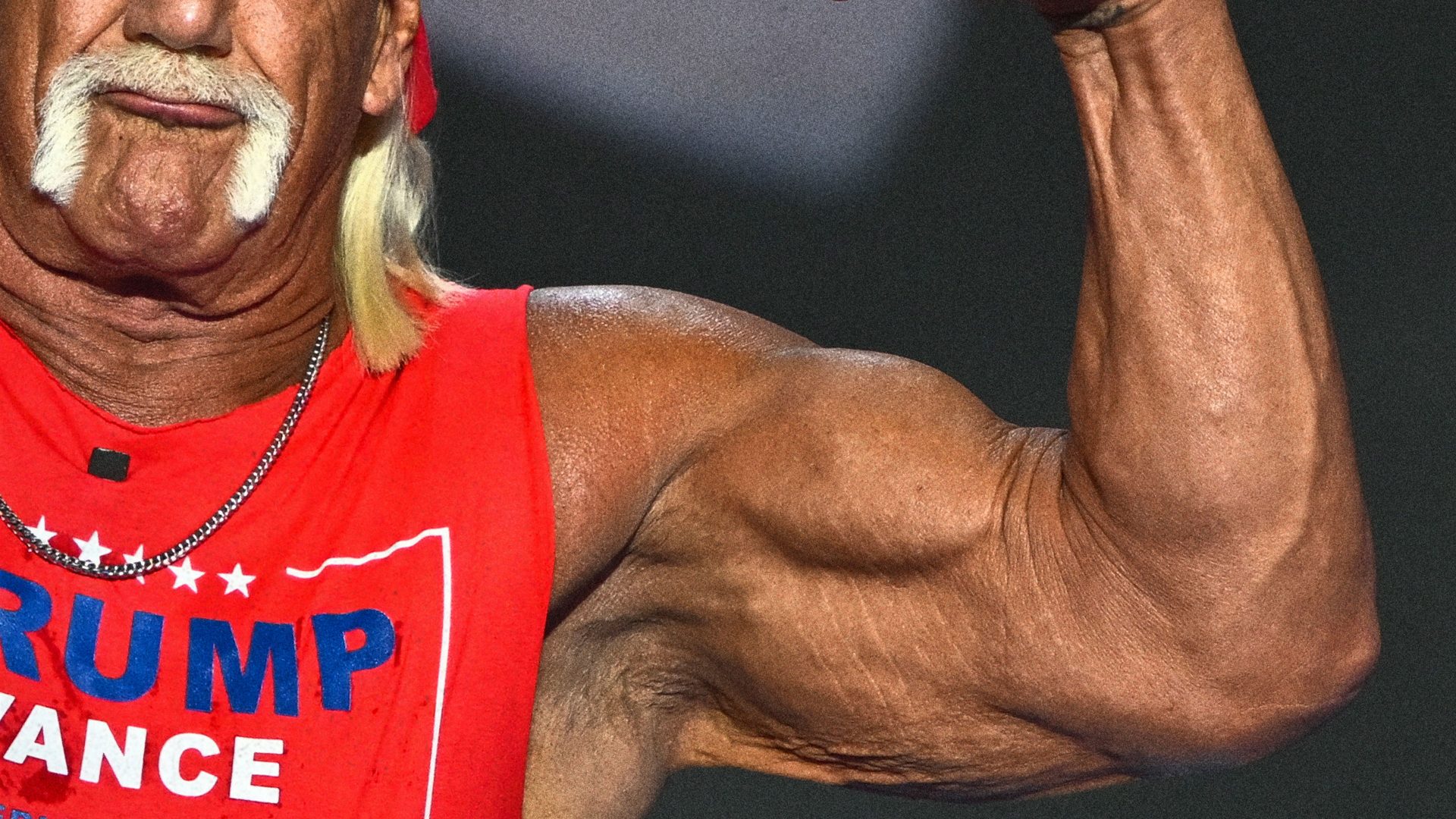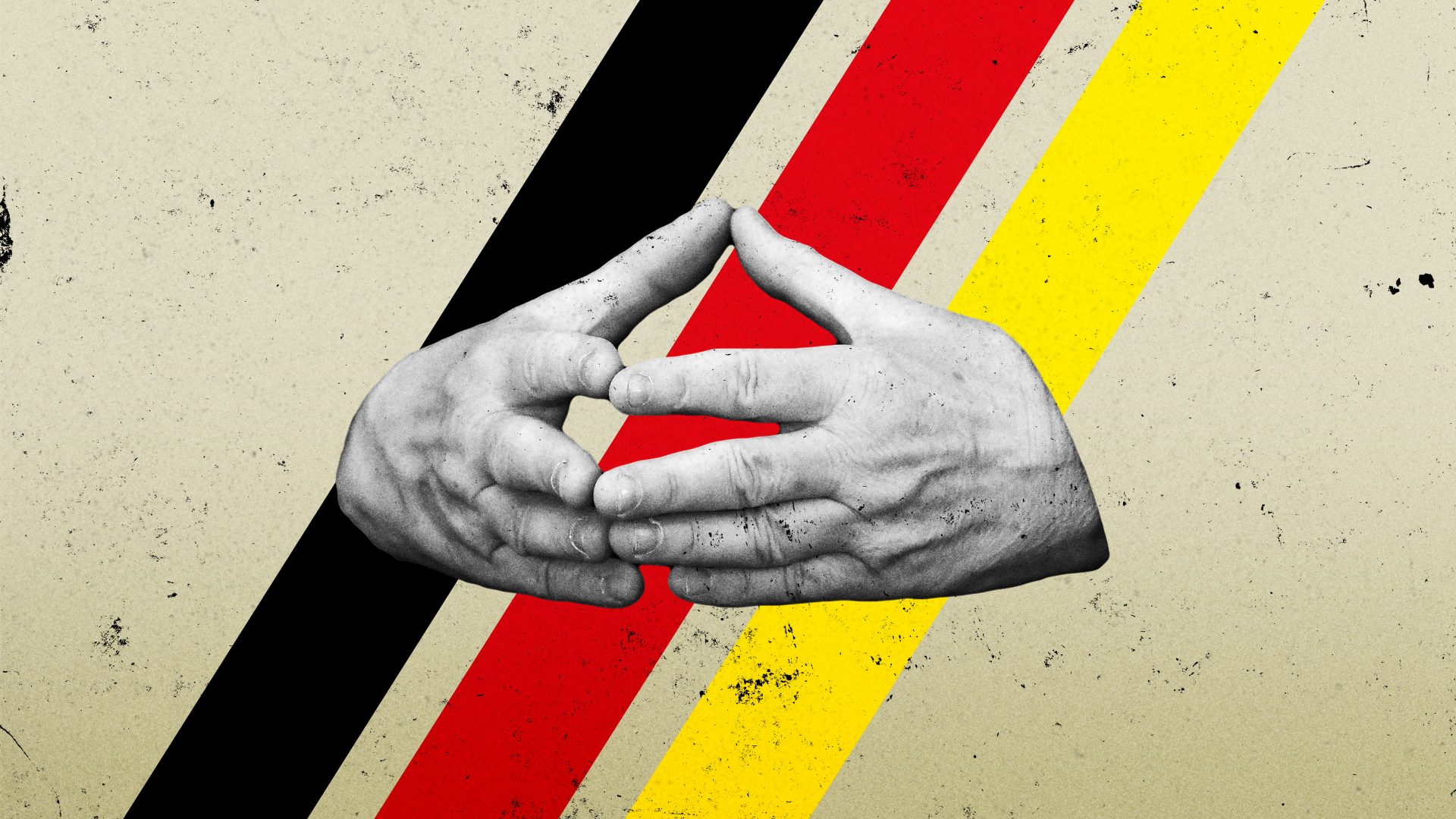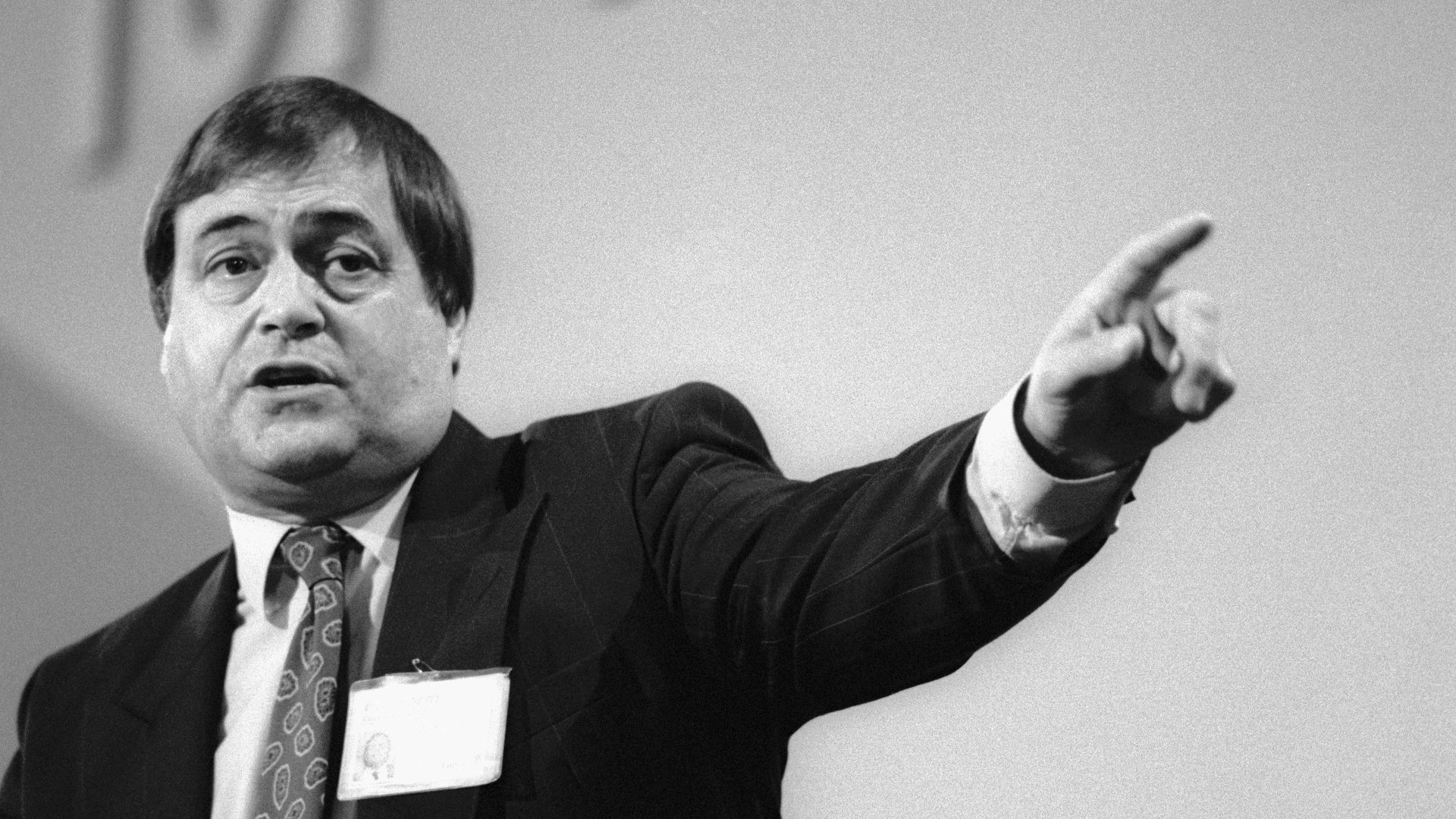In March 2011, Comedy Central aired its Roast of Donald Trump, to coincide with a short-lived run for the presidency by its star victim. Hosted by Seth MacFarlane, the show featured a series of celebrities – Snoop Dogg, Larry King, Marlee Matlin, Gilbert Gottfried and other lesser-known figures such as Jersey Shore’s Mike “The Situation” Sorrentino – making racist, sexist and generally degrading jokes at the expense of Trump and of one another. At the end, he returned the compliment, abusing them all as only he can.
The shared assumption of the roasters was that Trump’s ambitions were clearly hilarious. “It’s pronounced: ‘I am fucking delusional’,” said MacFarlane, “not ‘I’m running for president’.” The comedian Jeff Ross went further: “I can’t wait for the assassin-… I mean, the inauguration.”
Trump grinned amiably throughout and congratulated each of his denigrators as they returned from the lectern to their seats.
Roasting is deeply embedded in US popular culture: a form of comic humiliation made famous by the New York Friars Club, whose first victim was Maurice Chevalier in 1949, and then by NBC’s The Dean Martin Celebrity Roast. The format, much too abusive for British television, continues to thrive.
In May, Netflix posted The Roast of Tom Brady, hosted by Kevin Hart, in which the former NFL star was subjected to a blitz of pitiless character assassination.
One of Brady’s roasters was the comedian Tony Hinchcliffe – presenter of the wildly offensive Kill Tony podcast – who went on to achieve global notoriety at Trump’s Madison Square Garden rally on October 27.
Calling Puerto Rico “a floating island of garbage”, Hinchcliffe was vilified around the world and thought to have done serious damage to Trump’s electoral chances.
In fact, a joke that sparked universal horror among progressives appears to have been shrugged off by the very demographic it denigrated. On November 5, Trump secured 43% of Latino votes, up eight points from 2020.
The obvious point – not a welcome one for most liberals – is that offence is never taken uniformly, and it’s a mistake to assume otherwise. As one Republican strategist put it to me: “Libs think that everyone thinks like them. Well, they don’t. All the young men who voted Trump – they’ve grown up on gangsta rap. Do you really think they find him offensive?”
The greater lesson concerns Trump’s colonisation of cultural forms and the effective use to which he has put them. It was the hard right journalist and activist Andrew Breitbart who popularised the claim that “politics is downstream from culture”. No 21st-century politician has understood that better – intuitively if not intellectually – than the 45th and 47th president of the United States.
Roasting, as he demonstrated at the annual Al Smith dinner in New York last month, comes naturally to Trump. Though Kamala Harris was absent, he reserved his sharpest barbs for Chuck Schumer, the Democrat Senate majority leader. “Look on the bright side,” the Republican nominee told Schumer. “Considering how woke your party has become, if Kamala loses you still have the chance to become the first woman president.” His victim could only gurn abjectly.
This dark talent has long been acknowledged by stand-up comics. Dave Chappelle, Jim Jefferies, Shane Gillis: all have analysed the effectiveness of Trump more adroitly than most political commentators. Long before he was boasting of “the weave” – his rambling, shaggy dog style – comedians grasped precisely what he was up to, and how he insinuated prejudice and venom into cheerfully crazy stories about sharks and boat batteries, “the late, great Hannibal Lecter”, and Arnold Palmer’s genitals. They understood that, by presenting himself as an entertainer rather than a conventional candidate, he was buying himself permission from audiences to say the unsayable.
It is true that Trump is entirely a product of the television age, his fame owing more to his role as host on NBC’s The Apprentice for 14 seasons than to his dubious business acumen. Pete Hegseth, his nominee for defence secretary, has been a presenter on Fox & Friends since 2017. Sean Duffy, his pick for transportation secretary, is a host on Fox Business, married to Rachel Campos-Duffy, who is also, as Trump pointed out in his statement, “a STAR on Fox News”.
Pam Bondi, his replacement nominee as attorney general since the withdrawal of Matt Gaetz, has been a regular on the same cable channel. Meanwhile, Trump has appointed as head of the Centers for Medicare and Medicaid Services the celebrity TV doctor Mehmet Oz – long associated with oddball weight loss products, expensive supplements and “miracle pills”.
Yet if Trump is the spawn of TV, and recruits disproportionately from that world, he has adapted nimbly to the digital revolution. It doubtless helped him that he had two social media platforms – Elon Musk’s X and his own Truth Social – turbo-charging his message. But it also mattered that he was so clearly at ease in the long-form podcasts that have become so central to American political culture.
In conversations with comedians like Andrew Schulz and Theo Von, former NFL football players Will Compton and Taylor Lewan on Bussin’ with the Boys, and the venture capitalist tech bros of the All-In podcast, Trump seemed to be in his element and content to listen to his hosts talk about sports, drugs and conspiracy theories. His three-hour chat with Joe Rogan has been watched 51 million times on YouTube alone.
In September, I wrote in the New European that “there is only one podcast that Harris needs to do” – Rogan’s. In the end, she appeared on a few others, including Alex Cooper’s Call Her Daddy, the podcast most listened-to by women on Spotify, and The Howard Stern Show. Harris acquitted herself perfectly well, but was never truly at ease. (Watch old clips of John F Kennedy’s press conferences: it is perfectly possible to be progressive and funny.)
I doubt that the Democrat nominee’s decision to pass on Rogan’s show was decisive in her defeat. But it was emblematic of a greater failure of judgment, a refusal to come to terms with the cultural ecosphere in which today’s politicians must operate.
Jennifer Palmieri, a senior adviser to Harris’s campaign, has revealed that “some of our progressive staff” were opposed to the candidate appearing on Rogan’s show. That ought to have positively encouraged her to make the trip to Austin, Texas.
Instead, she chose to respect the purity test imposed by her own entourage. Which is fine if you want to lead a social justice movement; but a bad plan if you want to lead the most powerful nation on earth.
Meanwhile, Trump leant into his image as a devotee of testosterone-charged sport. Last Tuesday, he nominated Linda McMahon, former chief executive of World Wrestling Entertainment (WWE), as education secretary – a role for which she is spectacularly unqualified. But, as we have seen, the only credential that matters to the president-elect is loyalty, and his friendship with McMahon and her husband, Vince – who is presently under federal investigation over allegations of sexual abuse and human trafficking – goes back decades.
Since hosting WrestleMania IV in Atlantic City in 1988, Trump has been closely associated with the (now separated) McMahons and their empire, often entering the ring to join in the scripted action and, since 2013, a member of the WWE Hall of Fame.
His entire political style is an offshoot of wrestling “kayfabe” – the art of making staged events seem genuine – and he has long relished the role of the “heel”: the villain who achieves adulation.
As Abraham Josephine Riesman writes in Ringmaster: Vince McMahon and the Unmaking of America (2023), Trump and the WWE pursued a parallel journey from the fringe to the mainstream: “Each philosophy approaches life with one goal: to remake reality in such a way as to defeat one’s enemies and sate one’s insecurities”.
Alongside wrestling, Trump was also an early champion of the Ultimate Fighting Championship (UFC) franchise, enabling its chief executive, Dana White, to stage his fight nights at the Trump Taj Mahal in Atlantic City when mixed martial arts was still widely deplored and marginalised as a blood sport. White spoke at the Republican convention in Milwaukee, and – much more unusually – was invited to chip in during Trump’s acceptance speech on election night.
On November 15, Steven Cheung, a former communications director for the UFC, was appointed to the same role at the White House. A day later, the deep affinity between the gladiatorial violence of the octagon and Trump’s political ethos was powerfully dramatised by his appearance in New York City at UFC 309, where he was granted a long-standing ovation as he walked out to Kid Rock’s American Bad Ass.
He embraced Rogan, a longtime UFC ringside commentator. In the president-elect’s entourage were Musk, Vivek Ramaswamy, Robert F Kennedy Jr, and Tulsi Gabbard, all appointees to his forthcoming administration, and – visibly uncomfortable in so disinhibited a milieu – the speaker of the House, Mike Johnson.
Top of the card was a bout between Jon Jones – arguably the greatest UFC fighter of all time – and Stipe Miocic, in which Jones successfully defended his heavyweight crown. He celebrated his victory by mimicking Trump’s trademark dad dance – as have many NFL players since the election. Suddenly, the days of taking the knee seem long ago.
What are progressives to make of this cultural rampage and its electoral triumph? Do I think Keir Starmer should start turning up at mixed martial-arts events, or that Pat McFadden should try stand-up comedy, or that Rachel Reeves should host a roast of Wes Streeting? Obviously not.
Populist nationalists can engage in “kayfabe” and reckless play-acting because they have no interest in the truth or in evidence: only in winning, blaming and nurturing fear and hatred. This is not a symmetrical game: progressives have the infinitely harder task of identifying policies and strategies that will make the world a better place and enacting them.
What is certain, though, is that the age of technocracy, message discipline and political piety is over. Electorates around the world have rumbled the culture of “talking points” and spin and are no longer buying it. They want politicians who meet them where they are, on their terms.
This is incredibly hard to do. You cannot make a decision to be authentic. You cannot plan to be normal. You can only hope to make a connection.
Harris did not do this sufficiently, and neither, so far, has Starmer.
The worst affliction of the centre left is its collective assumption that its ideas are self-evidently wonderful and that the public will, sooner or later, snap out of its false consciousness.
The prime minister treats the public square like a courtroom in which logic, facts and calm argument will always prevail. If that was ever true, it certainly isn’t so today.
The scolding, condescending tone adopted by many progressives is also an electoral passion-killer (this, much more than transphobia, is why the “Kamala is for they/them, president Trump is for you” ad landed so hard).
Starmer’s occasional air of elite presumption makes him seem as exciting and contemporary as a Betamax recorder. Both he and Reeves too often resort to impatience: “Well, what would you do?”
It is hard to exaggerate how out of sync this is with the spirit of the age. The voters are the impatient ones. They don’t allow that privilege to their politicians.
Trump has shown how important it is to burrow into the cultural folds of the nation you aspire to lead: as his opponents sneered at his passion for roasts, WWE, UFC and off-colour shtick, he was laying the foundations of his place in American history. Dominance of institutions is no longer enough: nothing like. You have to achieve the broader “hegemony” of which Antonio Gramsci wrote.
At the end of the Comedy Central roast 13 years ago, Trump became momentarily serious. If he ran, he said, “you’ll have the great pleasure of voting for the man who will go down as the greatest president in the history of the United States – me”.
And here we are. Are you not entertained?




